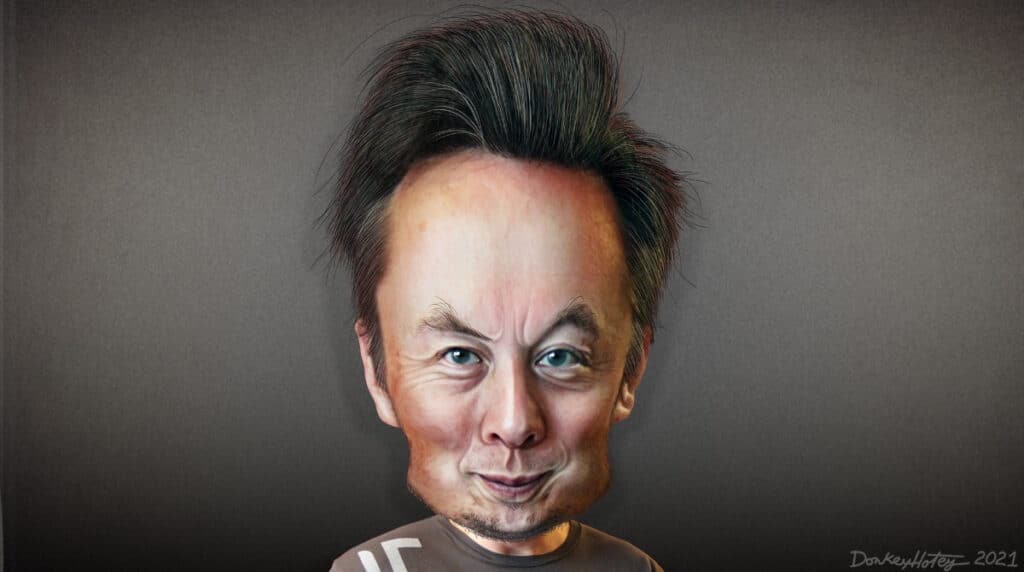The FTC Should Be Prepared to Make An Example of Elon Musk
Justin Hendrix / Nov 10, 2022Justin Hendrix is CEO and Editor of Tech Policy Press. Views expressed here are his own.

Since he took control of the company, Elon Musk has variously referred to himself as Twitter's Chief Twit and Twitter Complaint Hotline Operator. But might he soon add another title- Chief Saboteur?
On Thursday morning, Platformer's Casey Newton tweeted that "[a]ccording to messages shared in Twitter Slack, Twitter’s CISO, chief privacy officer, and chief compliance officer all resigned last night." The messages seemed to indicate concern in the company that the rapid changes Musk is pursuing-- including mass layoffs, fiddling with verification, and promising a content advisory council that would (in Musk's own words) "obviate the need" for "a lot of the content stuff that currently is in place"-- could be "extremely dangerous for our users" and may lead to potential violations of the company's obligations under a Federal Trade Commission (FTC) consent decree. The departing executives include Lea Kissner, who served as the Chief Information Security Officer.
“All of this is extremely dangerous for our users,” the message says. “Given that the FTC can (and will!) fine Twitter BILLIONS of dollars pursuant to the FTC Consent Order, extremely detrimental to Twitter’s longevity as a platform. Our users deserve so much better than this.”
— Casey Newton (@CaseyNewton) November 10, 2022
“Given that the FTC can (and will!) fine Twitter BILLIONS of dollars pursuant to the FTC Consent Order," one of the messages read, it is "extremely detrimental to Twitter’s longevity as a platform. Our users deserve so much better than this.”
The Verge's Alex Heath filed a story on the messages minutes after Newton's tweet, and the New York Times reported the resignations came just "a day ahead of a deadline for Twitter to submit a compliance report" to the FTC. The FTC, for its part, issued a statement saying "[we] are tracking recent developments at Twitter with deep concern. No CEO or company is above the law, and companies must follow our consent decrees," per Washington Post tech policy reporter Cat Zakrzewski. "Our revised consent order gives us new tools to ensure compliance, and we are prepared to use them.”
But will the FTC, in fact, step up the urgency of its investigation of whether the platform is in violation of the consent decree? Earlier this year, when former Twitter head of security turned whistleblower Peiter “Mudge” Zatko, filed a complaint to the Securities and Exchange Commission (SEC), the Washington Post reported that "chronic underfunding and understaffing have left the government’s top Silicon Valley watchdog without the personnel or technical expertise to monitor decrees and levy fines when they are not followed."
On the other hand, the FTC did fine Twitter $150 million earlier this year to "settle allegations that it deceptively used email address and phone numbers it had collected to target advertising," per the Post, and there is evidence that the Twitter deal is already under federal investigation. And former FTC officials believe the agency is on the case- “I would say with 100% certainty that they have opened an investigation,” David Vladeck, head of the FTC’s consumer protection division from 2009 to 2012, told The New York Post following the Zatko revelations. Eileen Harrington, a former FTC executive director, concurred. And in September, FTC Chair Lina Khan told the Senate Judiciary Committee's Subcommittee on Competition Policy, Antitrust, and Consumer Rights that the agency intended to "tighten" up its enforcement practices against companies that treat its "orders as suggestions."
Twitter is already meant to be under the microscope for the next two decades due to its previous failures. But perhaps more importantly, the world's richest man has a history of flaunting regulatory agencies- he called SEC regulators "bastards" at a conference earlier this year, and in 2018 said rather baldly, "I do not respect the SEC," after he was fined $20 million for misleading Tesla investors in his public communications, including on Twitter.
Of course, the FTC's enforcers will have to weigh the evidence before taking any action. "Musk has a history of playing fast-and-loose with regulatory mandates, and generally hasn’t suffered a lot of consequences for it," Justin Brookman, Director of Technology Policy for Consumer Reports, told me. "That said, the FTC shouldn’t just go after him for the sake of going after him — there has to be a violation of the order. A violation of the order seems more likely these days given today's departures and the general chaos and direction of the company, but can’t be assumed or manufactured."
Twitter may represent a true test of the FTC's resolve. Musk clearly believes he is above the law-- if American institutions are to mean anything, regulators should scrutinize him and his newest company with urgency and vigor, and the FTC should be prepared to make an example of him if violations are discovered.
Authors
